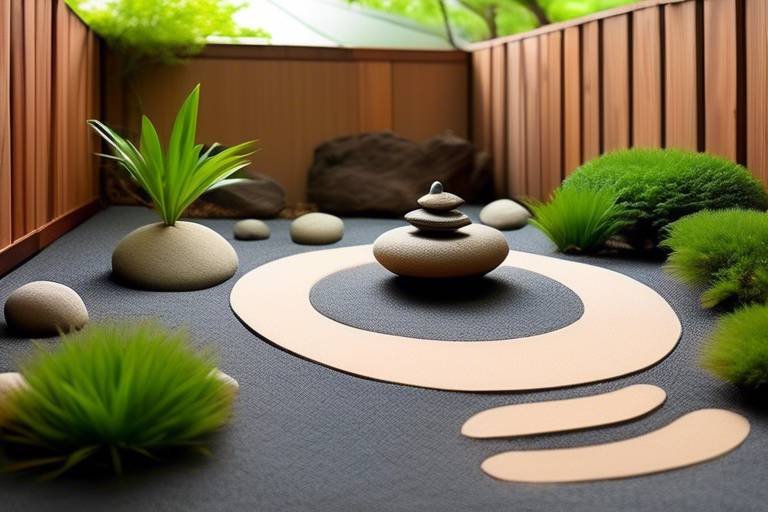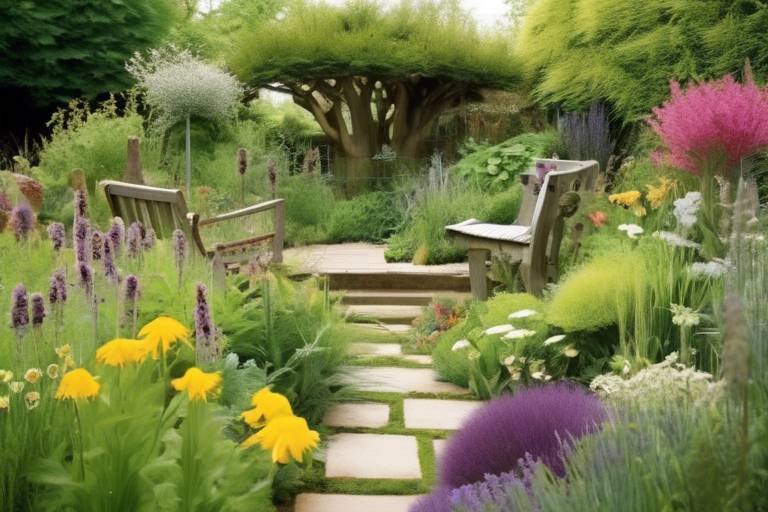Top 10 Plants for a Zen Garden
Creating a Zen garden is a beautiful way to bring tranquility and serenity to your outdoor space. When selecting plants for your Zen garden, it's essential to choose ones that not only enhance the aesthetic appeal but also promote a sense of peace and mindfulness. Let's explore the top 10 plant choices that can transform your garden into a harmonious sanctuary of relaxation and meditation.
First on our list is Bamboo. Renowned for its graceful appearance and soothing rustling sound, bamboo symbolizes strength and flexibility in Zen philosophy. Its presence in a Zen garden can evoke a sense of resilience and adaptability, making it a popular choice among garden enthusiasts.
Next, we have the Japanese Maple. With its vibrant foliage and elegant branches, the Japanese maple adds a pop of color and serenity to any Zen garden. The intricate beauty of its leaves and branches provides a focal point for contemplation and reflection, enhancing the overall Zen experience.
Lavender is another must-have plant for a Zen garden. Known for its calming fragrance and beautiful purple blooms, lavender promotes relaxation and mindfulness. The gentle scent of lavender wafting through the garden can help create a peaceful atmosphere conducive to meditation and introspection.
Rock Rose, with its resilient nature and delicate flowers, brings a touch of natural beauty and simplicity to a Zen garden. This drought-tolerant plant requires minimal maintenance while adding a sense of tranquility and elegance to the outdoor space.
White Sage, considered a sacred plant with purifying properties, is often used in meditation practices and rituals. Its presence in a Zen garden can bring clarity and tranquility, creating a sacred space for reflection and spiritual connection.
The Japanese Black Pine, characterized by its striking dark green needles and sculptural form, embodies the essence of Zen principles. Symbolizing longevity and resilience, this tree adds a sense of strength and endurance to the garden, reflecting the core tenets of Zen philosophy.
The Peace Lily, with its elegant white flowers and air-purifying qualities, represents harmony and balance. This plant is an excellent choice for creating a serene atmosphere in a Zen garden, promoting a sense of peace and well-being.
Moss, known for its lush green appearance and soft texture, adds a touch of natural simplicity and tranquility to a Zen garden. Its velvety carpet-like texture creates a peaceful environment, inviting contemplation and relaxation.
Lastly, the Cherry Blossom Tree symbolizes the fleeting beauty of life. With its delicate pink blooms that evoke a sense of impermanence and mindfulness, this tree adds a poetic touch to a Zen garden, reminding us of the transient nature of existence.
By carefully selecting these top 10 plants for your Zen garden, you can create a harmonious outdoor space that nurtures the mind, body, and spirit. Each plant contributes to the overall ambiance of the garden, fostering a sense of peace, mindfulness, and connection with nature.
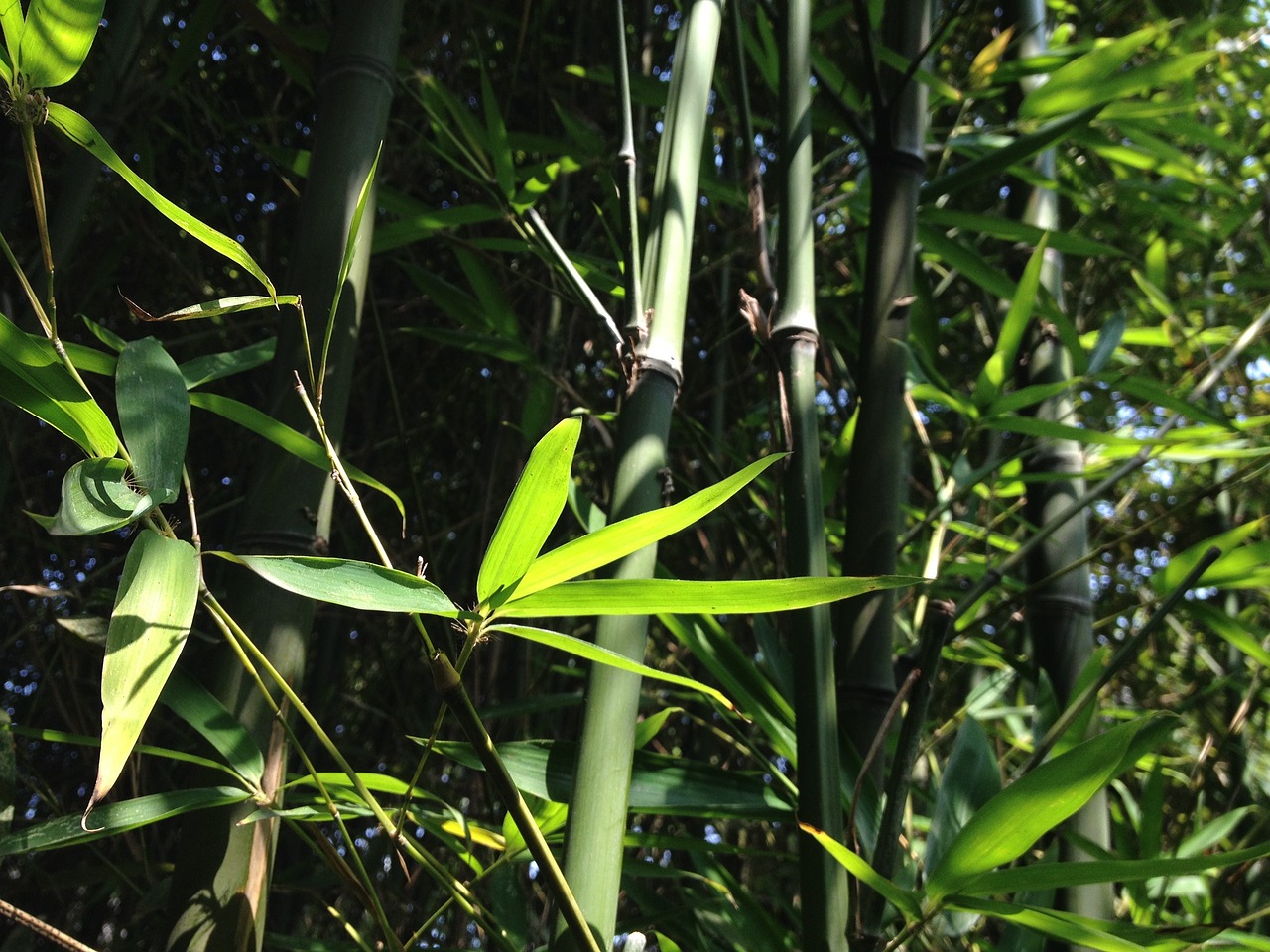
Bamboo
Explore the top 10 plant choices that can enhance the tranquility and beauty of a Zen garden, creating a harmonious and peaceful outdoor space for relaxation and meditation.
Bamboo is a plant known for its graceful appearance and soothing rustling sound. In Zen philosophy, bamboo symbolizes strength and flexibility, making it a popular choice for Zen gardens. Its tall, slender stalks can add a sense of verticality and movement to the garden, creating a dynamic yet calming atmosphere. The sound of bamboo swaying in the wind can be likened to a gentle melody, inviting you to relax and unwind in the presence of nature's symphony.
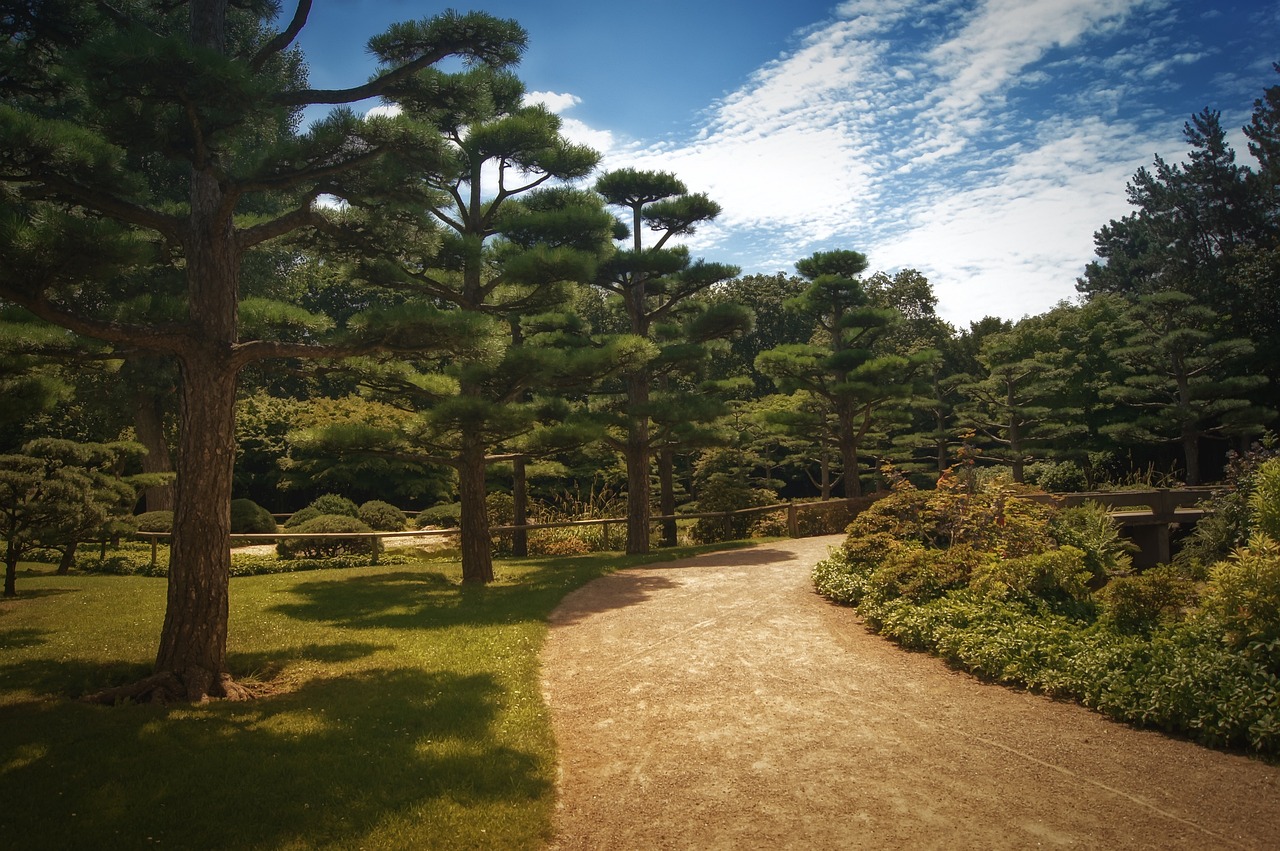
Japanese Maple
Explore the top 10 plant choices that can enhance the tranquility and beauty of a Zen garden, creating a harmonious and peaceful outdoor space for relaxation and meditation.
The Japanese maple, with its vibrant foliage and elegant branches, is a stunning addition to any Zen garden. Its leaves come in a variety of colors, from vibrant reds to soft greens, adding a touch of visual interest and serenity to the space. The graceful branches of the Japanese maple create a sense of flow and movement, inviting contemplation and reflection.
When strategically placed in a Zen garden, the Japanese maple can serve as a focal point for meditation, drawing the eye and mind towards its beauty. Its presence evokes a sense of calm and balance, harmonizing with the principles of Zen philosophy.
With proper care and maintenance, the Japanese maple can thrive in a Zen garden, providing year-round beauty and tranquility. Whether in full bloom during the spring or showcasing its fiery foliage in the fall, this tree symbolizes the changing seasons and impermanence of life, encouraging mindfulness and appreciation of the present moment.

Lavender
Lavender is a beloved plant in Zen gardens for its remarkable qualities that promote relaxation and mindfulness. This fragrant herb is renowned for its calming effects, making it a perfect choice for creating a peaceful and serene environment. The beautiful purple blooms of lavender not only add a pop of color to the garden but also attract beneficial pollinators, enhancing the overall harmony of the space.
One of the key benefits of lavender is its ability to reduce stress and anxiety, helping individuals find inner peace and tranquility amidst the chaos of daily life. The soothing aroma of lavender can uplift the spirits and create a sense of calm, making it an essential plant for those seeking solace and mindfulness in their Zen garden.
Additionally, lavender is known for its versatility and low maintenance requirements, making it a practical choice for both experienced gardeners and beginners. This resilient plant thrives in sunny locations with well-drained soil, requiring minimal water once established. Its drought-tolerant nature and adaptability make it a hassle-free addition to any Zen garden design.
Furthermore, lavender is not only aesthetically pleasing but also offers practical benefits. Its aromatic properties can help repel pests naturally, keeping the garden free from unwanted insects without the need for harmful chemicals. This natural pest control method aligns with the principles of Zen gardening, emphasizing harmony with nature and sustainable practices.
Incorporating lavender into a Zen garden design can transform the outdoor space into a sanctuary of peace and serenity. Whether used in borders, containers, or as a focal point, lavender's beauty and calming essence make it a must-have plant for creating a harmonious atmosphere conducive to relaxation and meditation.
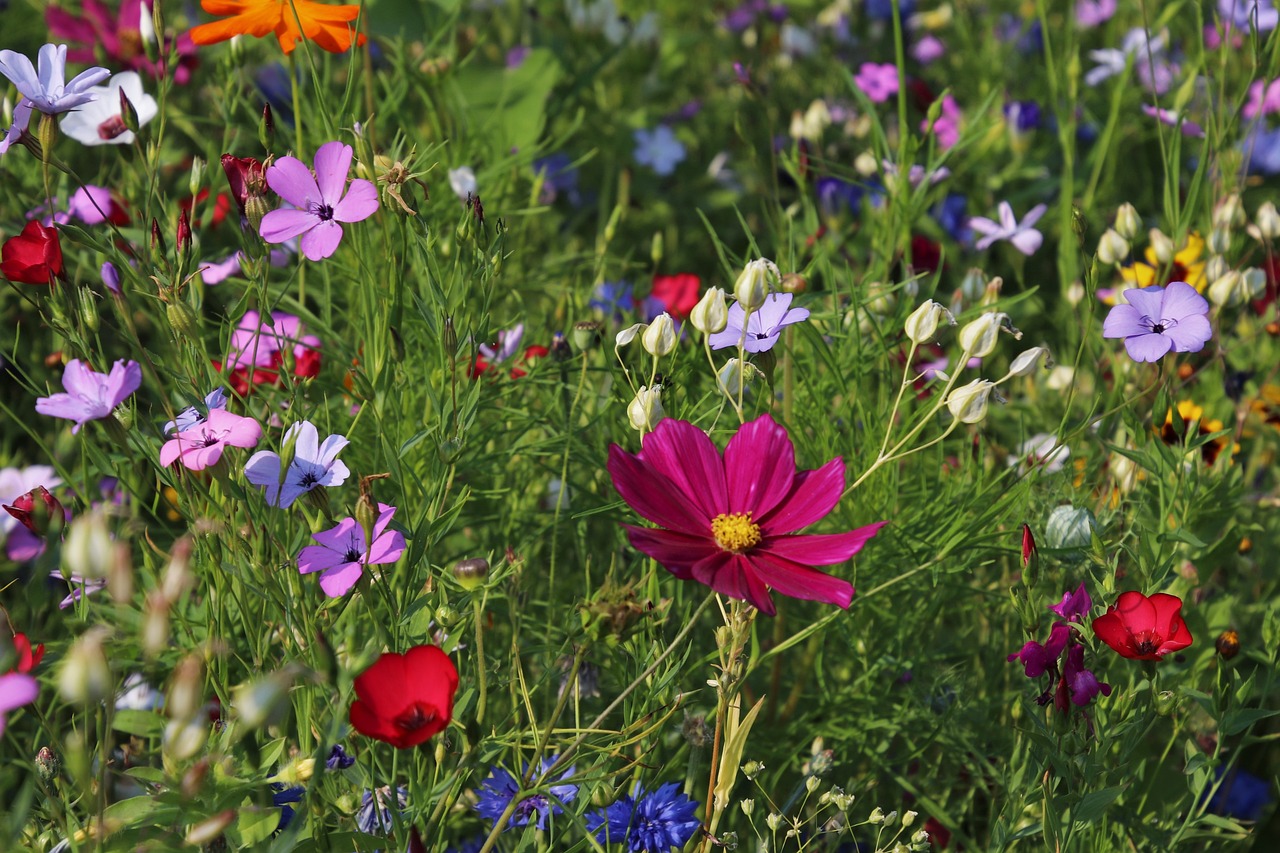
Rock Rose
Rock Rose, also known as Cistus, is a resilient and drought-tolerant plant that thrives in arid conditions, making it an excellent choice for a Zen garden. Its delicate flowers come in various shades of white, pink, and purple, adding a touch of natural beauty and simplicity to the serene environment of a Zen garden. The aromatic foliage of the Rock Rose releases a pleasant scent, enhancing the sensory experience and promoting a sense of calm and tranquility.
One of the remarkable features of Rock Rose is its ability to attract beneficial insects like bees and butterflies, contributing to the overall ecosystem of the garden. This plant requires minimal maintenance and can thrive in poor soil conditions, symbolizing resilience and adaptability, which are essential qualities in the practice of Zen philosophy.
When planted in clusters or as a border along pathways, Rock Rose creates a visually appealing landscape with its compact growth habit and profusion of blooms. Its drought resistance and low water requirements make it a sustainable choice for water-wise gardening, aligning with the principles of simplicity and mindfulness that are central to the Zen garden aesthetic.

White Sage
White Sage, also known as Salvia apiana, holds a sacred place in various indigenous cultures for its cleansing and purifying properties. In Zen gardens, White Sage is revered for its ability to create a serene and harmonious atmosphere, perfect for meditation and reflection. The aromatic scent of White Sage is believed to clear negative energy and promote mental clarity, allowing individuals to connect with their inner selves on a deeper level.
Symbolizing purity and wisdom, White Sage is often used in smudging rituals to purify the mind, body, and spirit. Its silvery-green leaves and tall, slender stems add a touch of elegance to the garden, inviting a sense of peace and tranquility. Placing White Sage strategically in a Zen garden not only enhances the visual appeal but also infuses the space with a sense of sacredness and reverence.
White Sage thrives in well-drained soil and requires plenty of sunlight to flourish. Its low maintenance nature makes it an ideal choice for those seeking a plant that symbolizes resilience and strength. Whether used as a standalone feature or combined with other plants in a Zen garden, White Sage brings a sense of balance and harmony to the overall design, creating a sanctuary for contemplation and mindfulness.

Japanese Black Pine
The Japanese Black Pine, known as "Kuromatsu" in Japanese, is a revered tree in Zen gardens for its symbolic significance and aesthetic appeal. This evergreen conifer is characterized by its dark green needles and distinctive sculptural form, embodying the essence of Zen principles with its resilience and longevity.
In Japanese culture, the Black Pine is considered a symbol of strength, steadfastness, and good fortune. Its ability to withstand harsh conditions and adapt to various environments reflects the Zen philosophy of endurance and flexibility in the face of challenges.
When planted in a Zen garden, the Japanese Black Pine serves as a focal point, offering a sense of tranquility and harmony amidst the natural elements. Its elegant silhouette and unique texture create a visual contrast against the backdrop of rocks, moss, and other plants, enhancing the overall aesthetic appeal of the garden.
Furthermore, the rhythmic pattern of the Black Pine's branches and needles is reminiscent of the Zen concept of "wabi-sabi," embracing imperfection and transience as part of the beauty of nature. The tree's minimalistic yet striking presence encourages contemplation and mindfulness, inviting individuals to connect with the present moment and appreciate the simplicity of life.
Overall, the Japanese Black Pine embodies the core principles of Zen philosophy through its visual symbolism and serene presence in a Zen garden, inspiring a sense of peace, resilience, and harmony with nature.
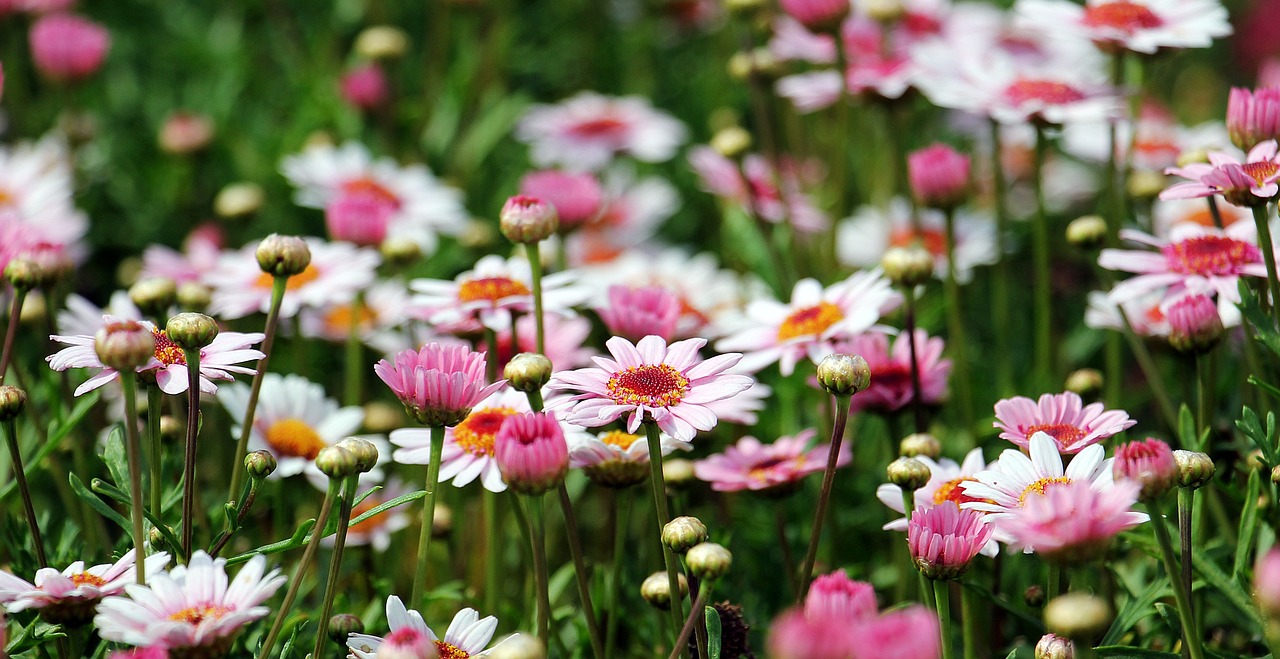
Peace Lily
The Peace Lily, scientifically known as Spathiphyllum, is a popular choice for Zen gardens due to its elegant white flowers and air-purifying qualities. This plant not only adds a touch of harmony and balance to the garden but also helps in creating a serene atmosphere that promotes relaxation and mindfulness.

Moss
Explore the top 10 plant choices that can enhance the tranquility and beauty of a Zen garden, creating a harmonious and peaceful outdoor space for relaxation and meditation.
When it comes to creating a serene and tranquil atmosphere in a Zen garden, moss plays a crucial role. Known for its lush green appearance and soft texture, moss adds a touch of natural simplicity and tranquility to the garden environment. Its ability to thrive in shaded and moist areas makes it a perfect choice for creating a peaceful and serene ambiance in a Zen garden.
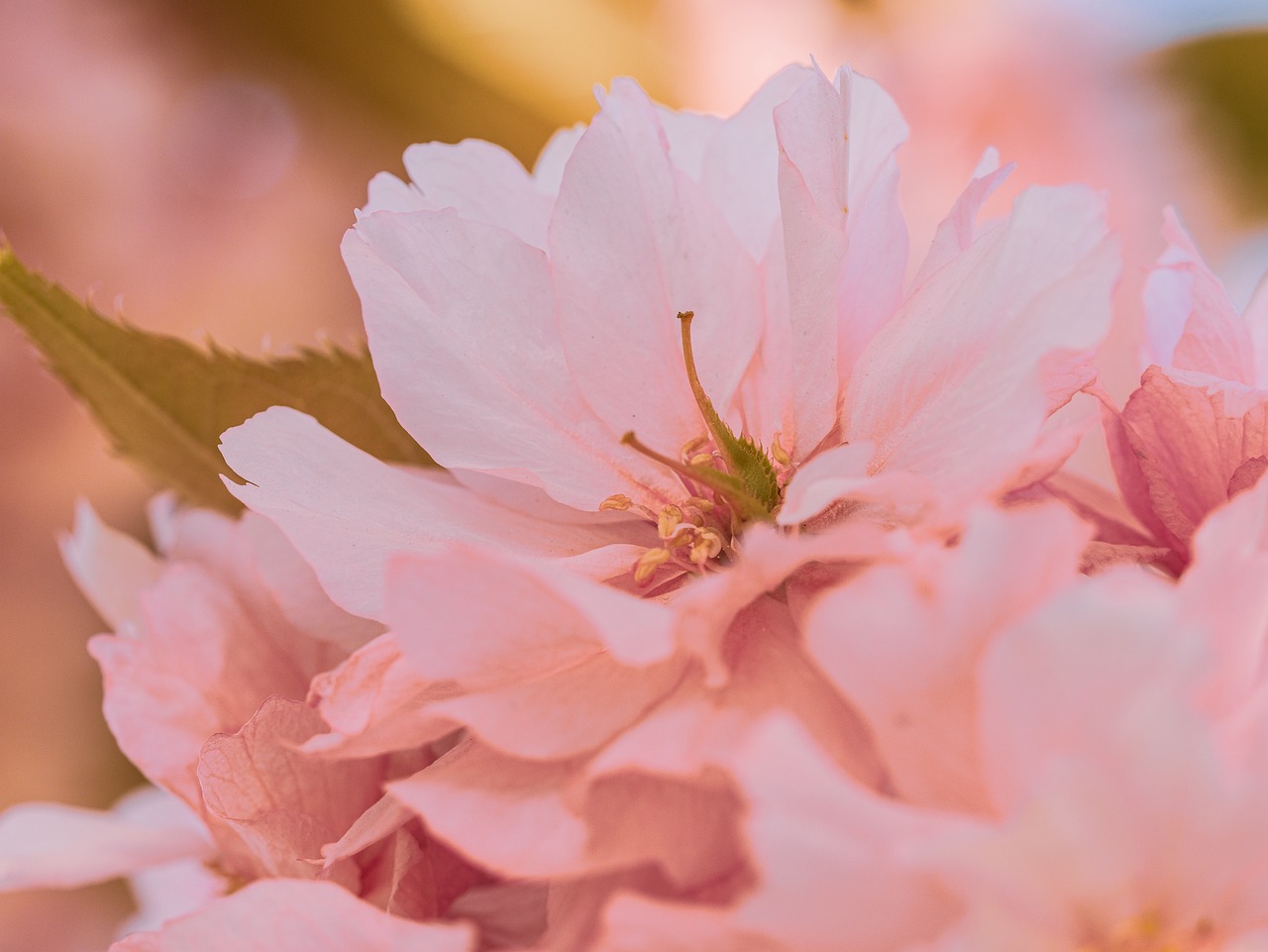
Cherry Blossom Tree
The Cherry Blossom Tree, also known as Sakura in Japan, is a symbol of beauty, renewal, and the fleeting nature of life. Its delicate pink blooms, which cover the branches in a breathtaking display, evoke a sense of impermanence and mindfulness in a Zen garden setting. The Cherry Blossom Tree represents the transient and ephemeral aspects of existence, reminding us to appreciate the present moment and the beauty that surrounds us.
Frequently Asked Questions
- What are the key elements of a Zen garden?
A Zen garden typically includes elements such as rocks, gravel, moss, and carefully selected plants that symbolize nature and promote tranquility.
- How do I maintain a Zen garden?
To maintain a Zen garden, regular tasks include raking the gravel to create patterns, pruning plants to maintain their shape, and ensuring a clean and clutter-free environment.
- Can I customize my Zen garden with additional plants?
Yes, you can customize your Zen garden by adding plants that align with the principles of simplicity, natural beauty, and mindfulness, enhancing the overall peaceful ambiance.
- Do I need a large space to create a Zen garden?
No, Zen gardens can be designed in small spaces or even indoors, using containers or miniature landscapes to create a serene and contemplative environment.
- Are there specific plant care tips for Zen garden plants?
Plant care in a Zen garden involves mindful watering, regular pruning, and ensuring proper sunlight exposure to maintain the health and vitality of the chosen plants.



